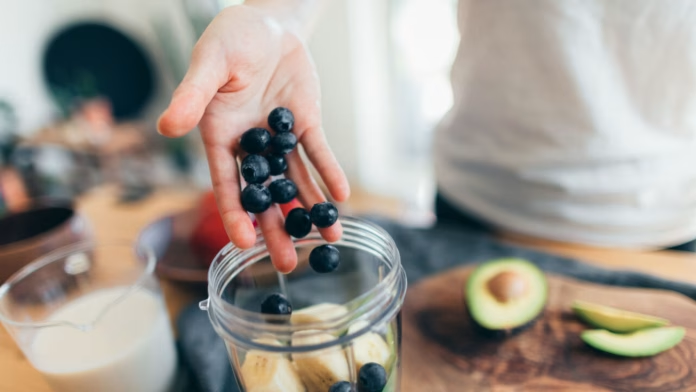Smoothies have gained popularity as a quick and convenient way to incorporate healthy ingredients into our diets. Packed with fruits, vegetables, and other nutritious additions, smoothies can be a great source of vitamins, fiber, and antioxidants. However, not all smoothies are created equal. In our quest for a delicious and satisfying blend, we often unknowingly add ingredients that can sabotage our health goals.
In this article, we will explore the surprising ingredients that could be harming your health and provide insights into how to avoid these common smoothie mistakes.
- Fat-free or low-fat flavored yogurt: Yogurt is a popular ingredient for adding creaminess and texture to smoothies. However, many flavored yogurts, especially those labeled as “fat-free” or “low-fat,” contain high amounts of added sugars to compensate for the lack of fat. These sugars can quickly turn your smoothie into a sugar bomb, undermining its potential health benefits. Opt for plain yogurts, such as Greek or Icelandic varieties, that are low in sugar and high in protein to enhance the nutritional value of your smoothie.
- Canned fruit: While canned fruit may seem like a convenient option, it often comes packed in sugary syrups that increase the overall sugar content of your smoothie. Instead, opt for fresh or frozen fruit, which retains its natural sweetness without the added sugars. Frozen fruit is particularly beneficial as it preserves the nutritional value and adds a creamy texture to your smoothie.
- Chocolate-hazelnut spread: While hazelnuts and chocolate individually offer nutritional benefits, combining them into spreads like Nutella can be problematic. These spreads are high in fat and sugar, which can lead to excess calorie intake and hinder weight loss efforts. If you want to add a burst of sweet flavor to your smoothie, consider using a small amount of natural nut butter instead.
- Added sweeteners: When seeking to enhance the sweetness of your smoothie, it’s important to be mindful of the type and amount of sweeteners used. Natural sweeteners like honey and maple syrup may seem healthier, but they still contribute a significant amount of sugar to your beverage. Be cautious with the quantity you add to maintain a balanced and nutritious smoothie.
- Sugary fruit juice: Adding fruit juice to your smoothie might seem like a simple way to boost flavor, but it also increases the sugar content. Store-bought fruit juices often contain added sugars and lack the fiber and nutrients found in whole fruits. Instead, consider using milk or plant-based alternatives as the liquid base for your smoothie. They provide essential nutrients without excessive sugar.
- Alcohol: While a boozy smoothie may sound tempting, it’s best to limit alcohol consumption and reserve it for special occasions. Alcoholic drinks in smoothies can significantly increase calorie and sugar intake. Moreover, alcohol can stimulate hunger and lead to overeating. Save your smoothies for a refreshing, non-alcoholic treat.
- Too much of a good thing: Certain smoothie ingredients, such as nut butters, avocado, and coconut oil, are considered healthy due to their nutritional profile. However, moderation is key. These ingredients are high in fats and should be used in controlled portions. Excessive consumption can lead to calorie overload and potential weight gain. Enjoy the benefits of these ingredients while being mindful of portion sizes.
- Ice cream: Adding a scoop of ice cream or frozen yogurt to your smoothie may make it irresistibly creamy, but it can also turn your healthy beverage into a dessert-like indulgence. The high sugar and calorie content in ice cream can overshadow the nutritional value of your smoothie. Instead, experiment with alternatives like frozen low-sugar, high-protein yogurt for a healthier texture and added nutrients.
Smoothies are a fantastic way to incorporate a variety of nutritious ingredients into your diet. However, it’s essential to avoid common smoothie mistakes that can undermine their health benefits. By steering clear of unhealthy ingredients like flavored yogurt, canned fruit, sugary additions, and excessive fats, you can create smoothies that are both delicious and nourishing. Remember to prioritize whole, fresh, and low-sugar ingredients to maximize the nutritional value of your smoothie and support your overall well-being. Cheers to a healthier smoothie experience!



